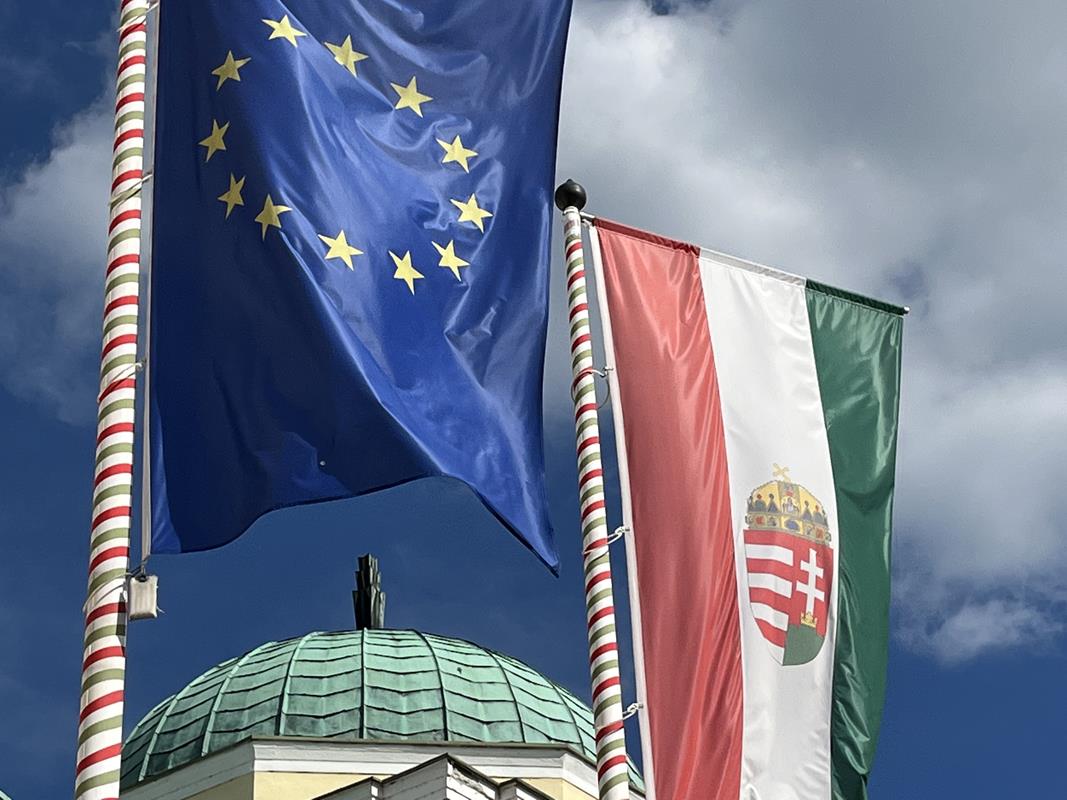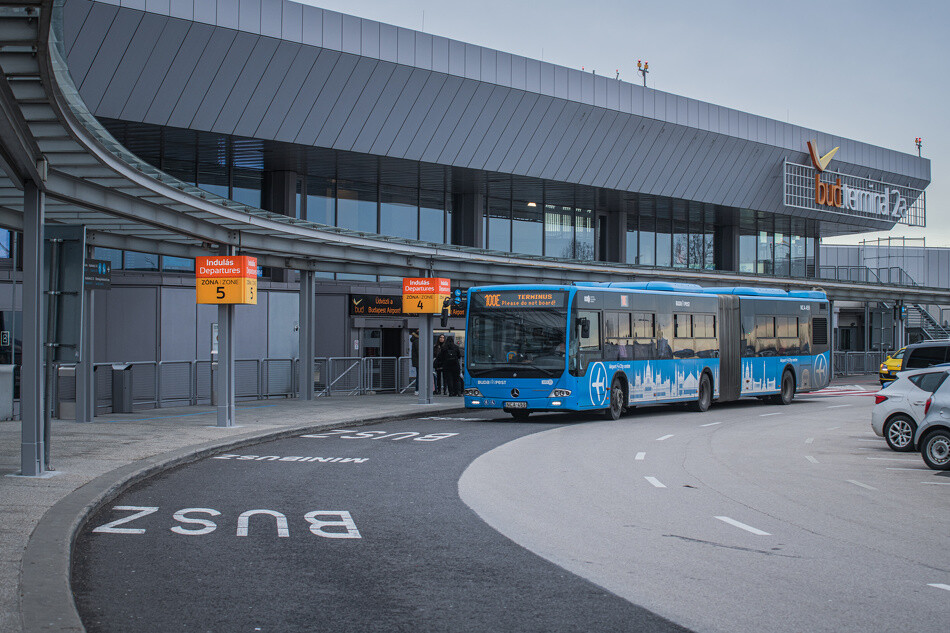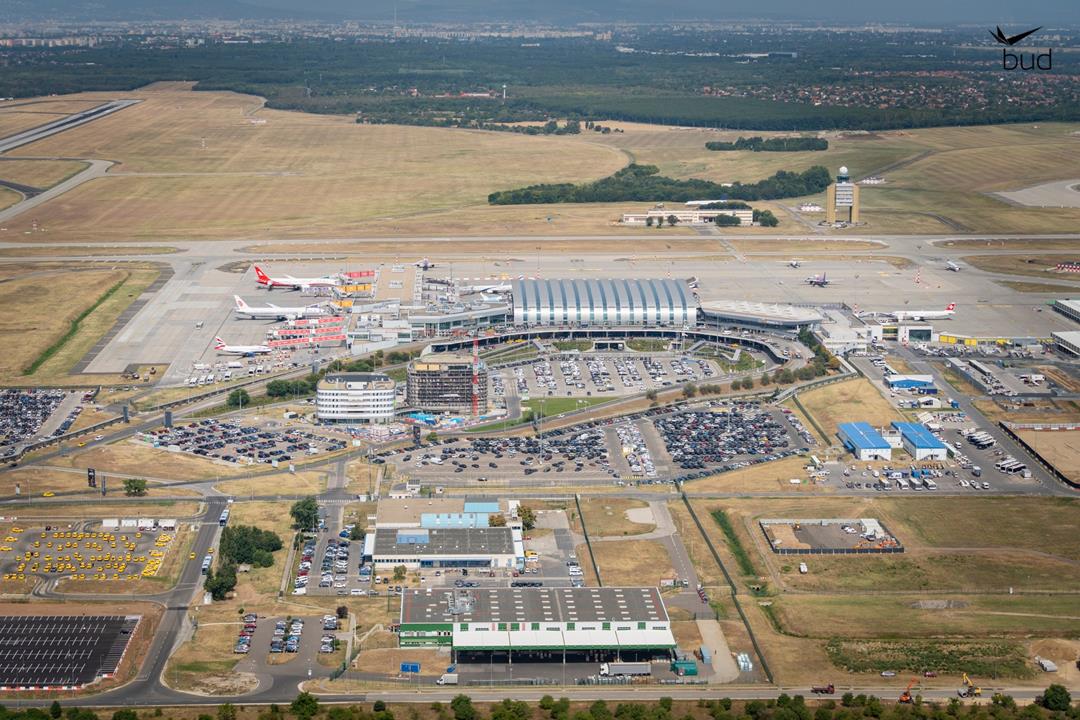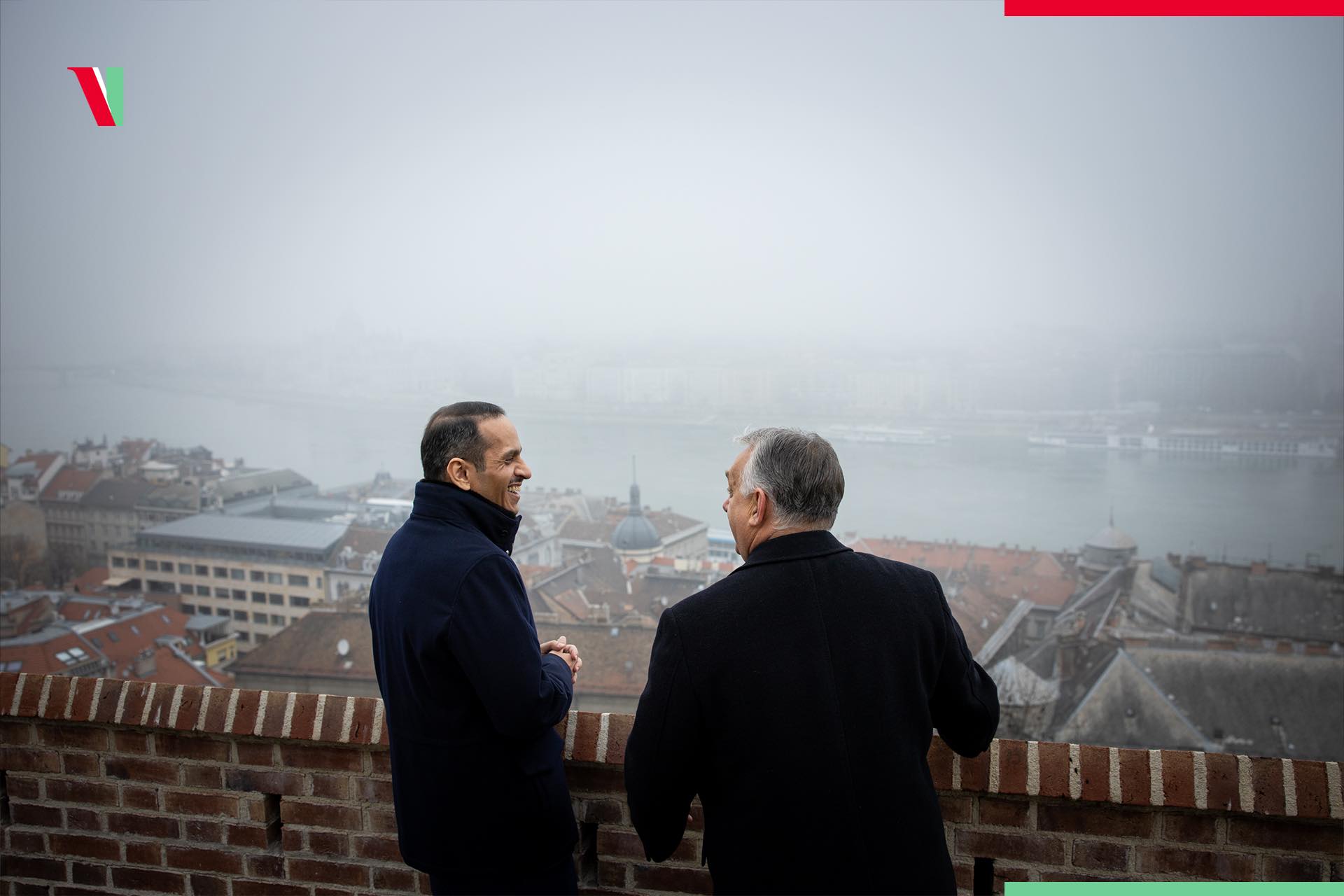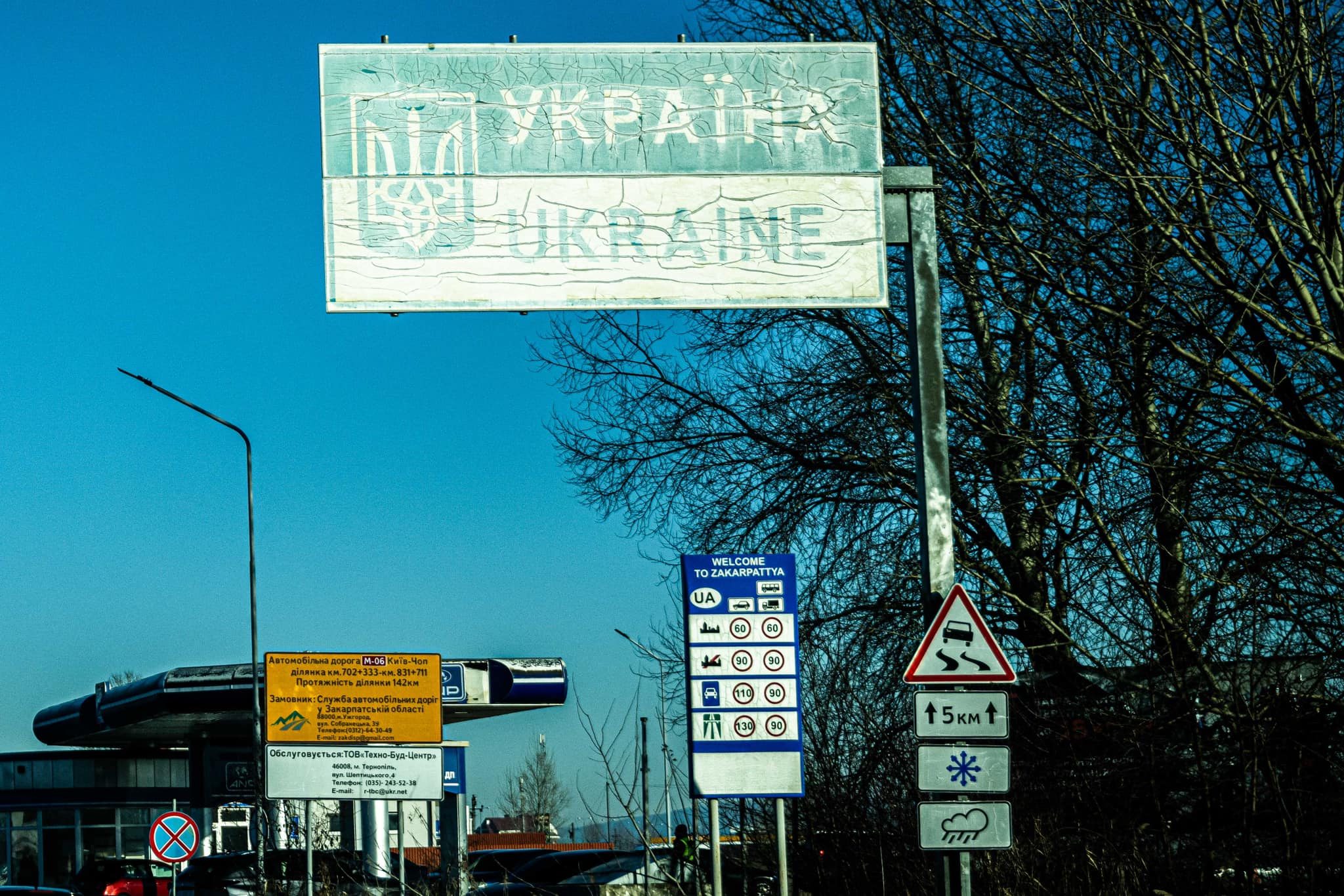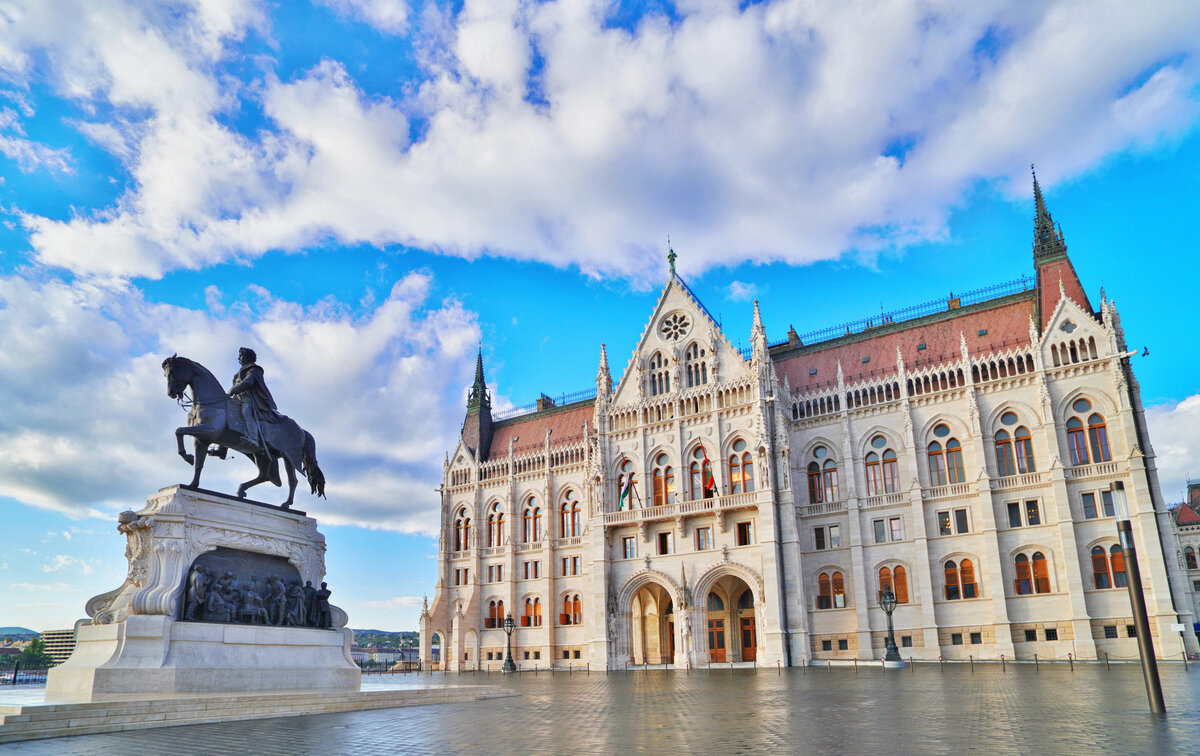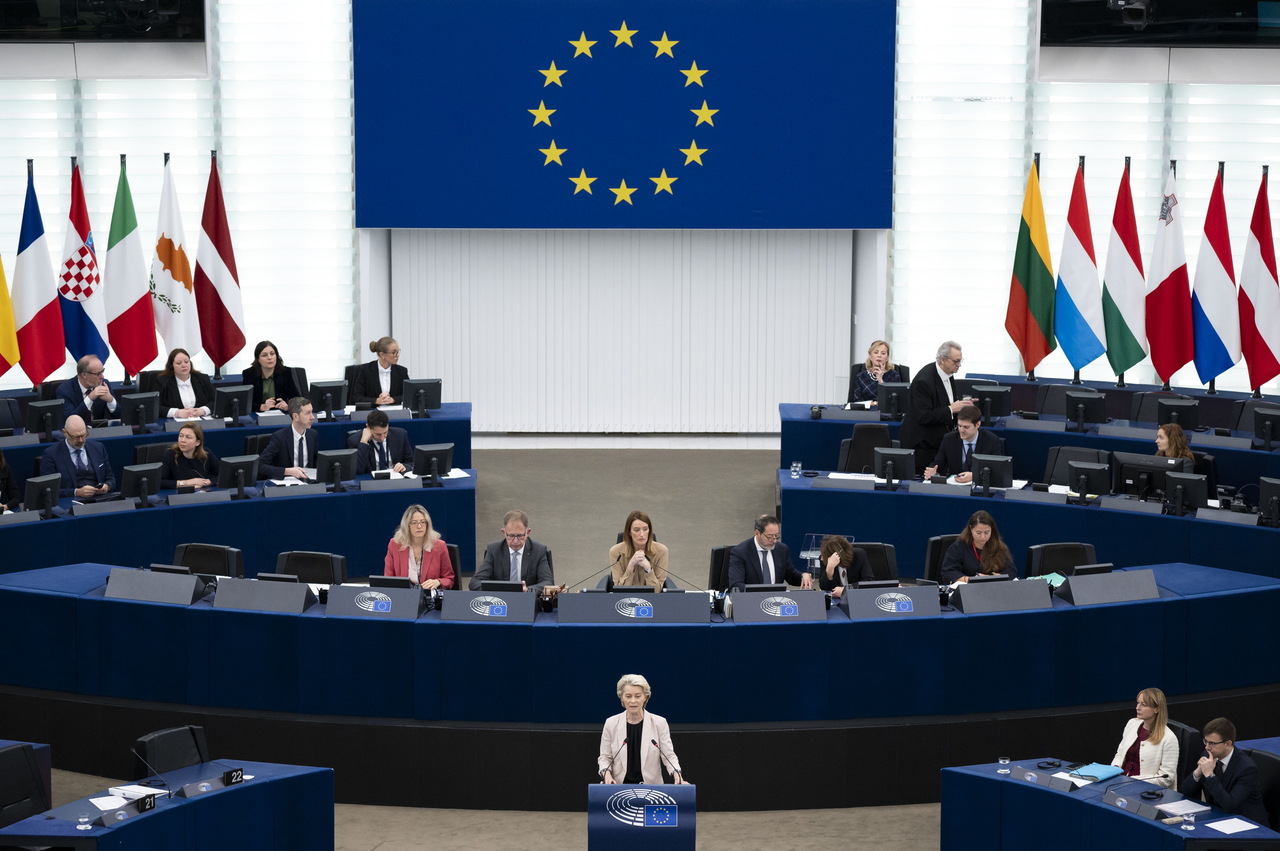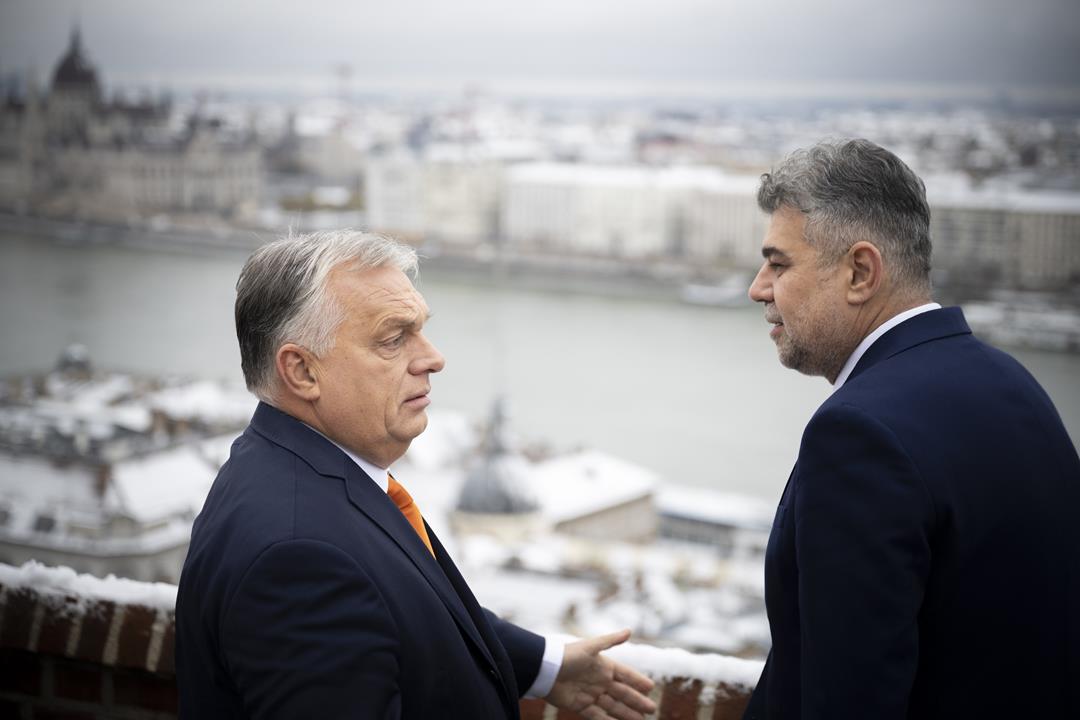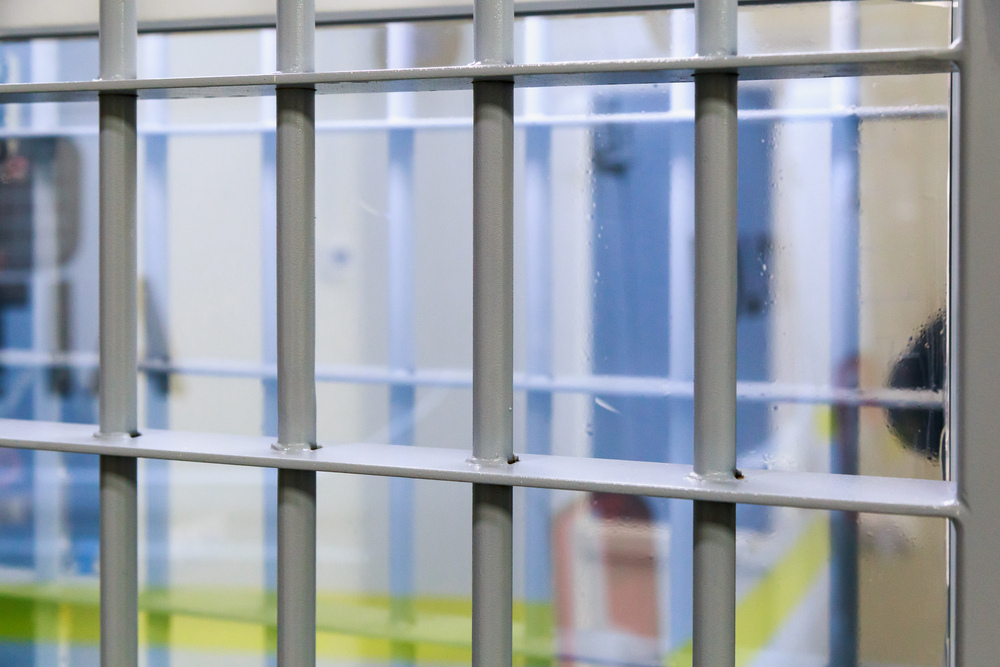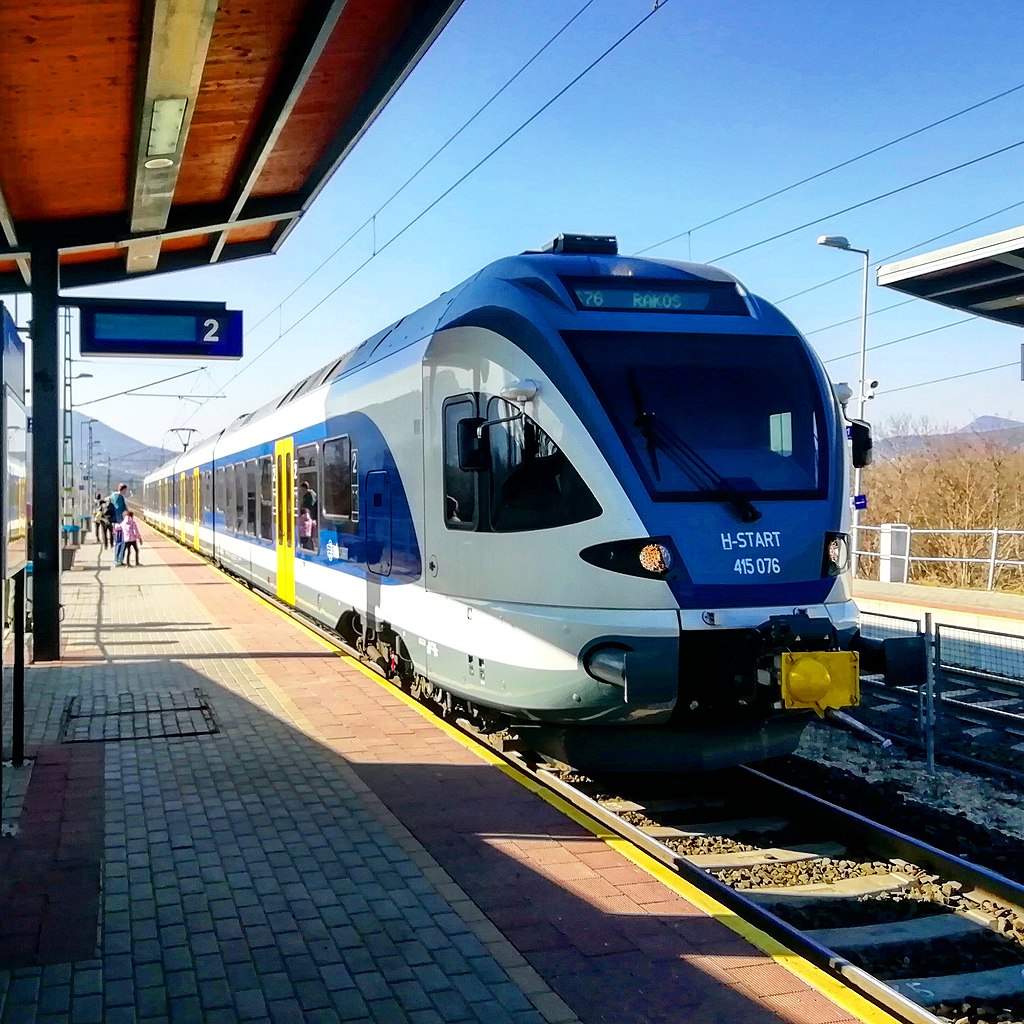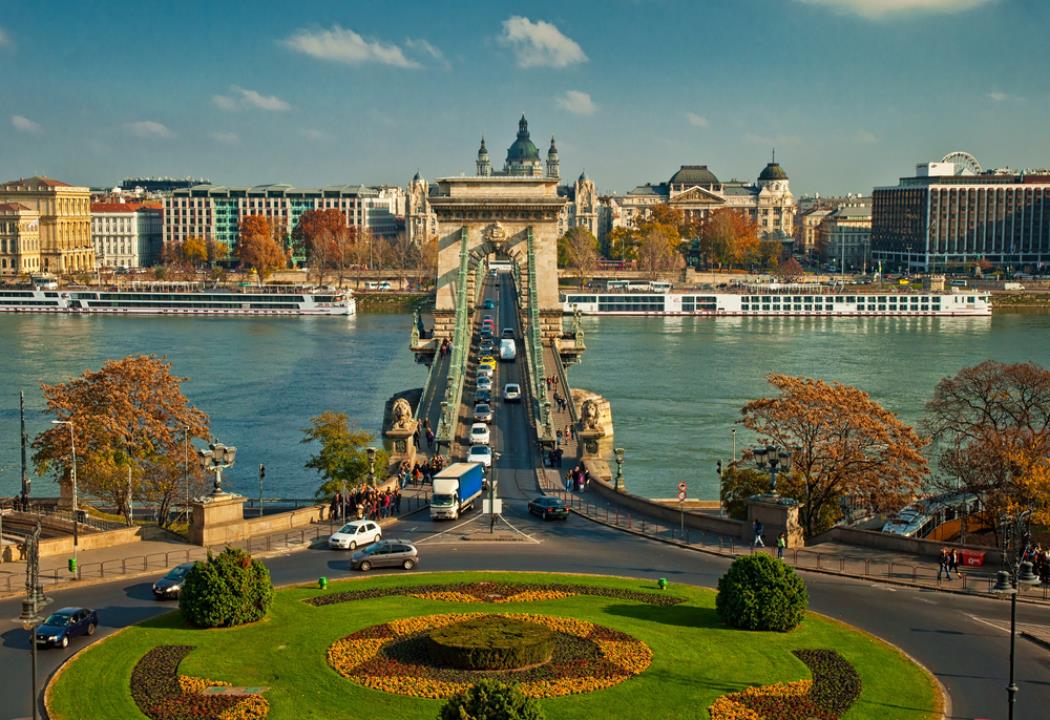“The danger of war is greater than ever,” the head of the Prime Minister’s Office told a regular government press briefing on Thursday.
Gergely Gulyás noted that the US would have a new administration from 20 January next year, but said “it seems that in the remaining less than two months the incumbent Democrat government and some European leaders will do everything to increase the danger of an escalating war.”
Hungary’s defence council and the government discussed the situation and increased air defences along the Hungary-Ukraine border in the wake of recent attacks on the Transcarpathia region, Gulyás said.
The Hungarian government “firmly opposes” attempts to thwart the incoming US administration’s pro-peace policy by sending more weapons to Ukraine.
Meanwhile, next year’s budget would represent “a new economic policy”, Gulyás said, citing Mihály Varga, the finance minister.
Gulyás said a real wage increase of around 10 percent was expected this year, and the wage agreement based on growth reached by employers, employees and the government would guarantee this for the next three years. Affordable housing was another important issue, he said, so next year’s budget would provide employers and employees with the means to ensure affordable housing.
A renovation scheme for rural homes will be launched next year, providing state support of a maximum of three million forints for people living in small settlements, and employers would be able to give housing support of up to 150,000 forints a month at the most favourable tax rate possible, he said.
Gulyás said the housing loan with a 5 percent interest rate cap guaranteed by banks for first-home buyers appeared to be faltering because the criteria set by banks were “excessively restrictive”, so only few people were taking advantage of this opportunity. So banks are being encouraged to modify the conditions so that this option can be made available to a wide range of customers, he added.
Gulyás said the government would extend a rate freeze on retail credit for another six months, ensuring that families’ interest payment burdens would not increase. But for the rate freeze, families would have had to pay hundreds of billions of forints, but the bank sector was willing to cover the additional costs, he said.
He said the government did not believe it would be right to abolish the rate freeze in the current interest-rate environment, he added.
At Wednesday’s cabinet meeting, the government authorised Marton Nagy, the national economy minister, to consult the Hungarian Chamber of Industry and Commerce on the details of the programmes, Gulyás said, adding that the programme would inject a total of 1,400 billion forints into the economy next year.
Gulyás noted that the budget also contained measures to double tax relief for families raising children in the space of a single year while also guaranteeing the 13th month pension.
This year pensions were raised by 6 percent, as inflation was slightly above 3 percent, and the government hopes that next year not only the 13th month pension will be guaranteed but also an increase in the real value of pensions, Gulyás said.
Regarding the wage agreement, Gulyás said wages were expected to rise by 40 percent over two years, and with inflation forecast at 2-4 percent in the long term, this would translate to a real wage increase of a similar size.
He said the size of the minimum wage increase put it among the top five in Europe, and the government would provide the necessary resources for it in the public sector.
Meanwhile, Gulyás said that the “pact” formed between the European People’s Party and the European left and liberals in Brussels “does not serve the interests of Europe or Hungary” but fell in line with the new European Commission’s programme.
Gulyás said the plan included implementing the migration pact, noting that the document did not confine asylum procedures to outside the European Union’s borders.
The pact, he said, also pledged further support for Ukraine and the war, adding that this went against the will of European voters “and the changes that’ll happen in the United States in January”.
Gulyás said the government also condemned the call to allow EU funds to be withheld on the basis of “political sympathy”.
Gulyás said it was “especially detrimental” that the pact included the introduction of new European taxes, which he said contravened European law under which taxation is a national competency.
“Brussels must not be given powers beyond those it already has in any area,” Gulyás said, adding that some of those powers should even be curbed because “Brussels is acquiring those rights through a stealthy expansion of its powers and bypassing or neglecting the treaties rather than amending them.”
Gulyás also said the pact included “an attack” on Hungary’s child protection law since “proposals aimed at ensuring the possibility of adoption to same-sex partners can be raised.” Such proposals “go against the Hungarian constitution and are incompatible with the interest of children,” he added.
Meanwhile, the minister said next year could bring peace and economic growth despite all difficulties. For the first time, he said, there was a chance of peace in Hungary’s neighbourhood, replacing the war looming over Europe. This could lead to lower energy prices and a chance to restore Europe’s competitiveness, he added.
He said large companies such as BYD, CATL and BMW starting production in Hungary next year provided “an excellent chance” for the economy to pick up, and he noted forecasts of a favourable growth trend. He said projections of a 3.4 percent growth were conservative, while “peace coming at the Ukrainian front could have a further boosting effect.”
Concerning the incoming European Commission, Gulyás said that European politics and the commission’s leadership of would remain the same, flying in the face of the will of voters expressed in the European elections. Meanwhile, he welcomed the re-appointment of Hungary’s commissioner, Oliver Varhelyi.
Gulyás said it was “worrying” that the European People’s Party was “deceiving its voters across Europe,” since the party had campaigned on a platform that excluded the left and opened up to the right, before opening up to the left-liberals and shutting off the right straight after the vote. The three group leaders’ pact signed on Wednesday “topped up the deceit”, he added.
Government spokeswoman Eszter Vitályos said state investments with a value of close to 14 billion forints were completed in the past two weeks. She said a stretch of the 441 highway between Kecskemet and Nagykoros, in central Hungary, has been resurfaced at a cost of more than 9 billion forints.
Among health developments, Vitályos mentioned a hospital in Nagyatad, in the south-west of the country, renovated at a cost of 700 million forints, apart from other renovation projects benefitting kindergartens, schools, and churches across the country.
Answering a question, Gulyás said central Europe and Hungary “must be saved from migrants”. He said the EU’s migration pact was “not functional” and could not be implemented. “The relocation of migrants is unfeasible and unacceptable,” he added. He said Hungary enjoyed a “national consensus” on migration but “the opposition has not joined it and has sided with migrants instead”.
Asked about the fine levied on Hungary in connection with its migration policy, Gulyás said it would depend on the new European Commission whether a solution to the issue could be found.
He said without Hungary’s big spending on protecting the EU’s external borders, migrants from the south would stop in Vienna, Berlin and Amsterdam. “It would be in the interest of the European Commission to reach an agreement, but the fact is that Brussels supports migration and has not given up on its goal to bring as many migrants to the EU as possible,” said Gulyás.
Meanwhile, addressing the issue of the current forint exchange rate, Gulyás said this was the central bank’s scope of responsibility and the government respected the bank’s independence. The Hungarian economy benefitted from a steady exchange rate but “currently this isn’t the case”. Current volatility, he added, could be eliminated, however.
Asked about government intervention to reduce inflation, Gulyás said the government had a tool-kit for cutting inflation, while the tools for handling the exchange rate were in the hands of the central bank. He said the government could help by supporting strong economic growth and by cutting the budget deficit “by 2 percent this year”.
Answering a question about Hungary’s electoral system, Gulyás called it “good and proportionate”, adding that the five percent threshold required for a party to enter parliament should not be changed. The foundations of the legal system have not changed since 1990, he said, adding that the new amendment submitted on the election law was aimed at ensuring the proportionality of individual constituencies
In response to another question, Gulyás said if American ambassador David Pressman was looking to find anti-Semites he should “put them among guests invited to the Seder dinner held at his residence” and examine them in light of the “brutal anti-Semitism” has developed in universities in his own country “infected by Democrat ideology”. He noted that Hungary will host soccer team Maccabi Tel Aviv, which was unable to play a match in the Netherlands without encountering anti-Semitic incidents there.
Insisting that support for the new European Commission was “significantly lower” than for its previous iterations, Gulyás said the reason was that European people had voted for parties and party alliances that were critical of the body.
Gulyás said the commission’s activities were defined in light of the personality of its president as well as the party family backgrounds of the commissioners and the countries they came from. “Although the European People’s Party had a poor showing in the two previous elections, it has the largest group in the European Parliament, and they the defining force in Brussels,” Gulyás said.
Gulyás said it was a technical matter whether the European Court of Justice fine levied on Hungary would be paid or deducted from EU funding.
He said the government’s wanted to reach an agreement that protected Hungary from migration but “the European Commission hasn’t shown willingness so far”. “Until there’s an agreement, Hungary must pay an extra price to protect the EU’s external borders, and the EC isn’t contributing to this but punishing the country,” he added.
Commenting on a peace plan laid out by US president-elect Donald Trump involving a demarcation line in Ukraine, he said Hungary supported all moves that established peace or at least a ceasefire there.
In response to a question about the Romanian parliamentary election, Gulyás said strong Hungarian representation in Romania was “vital”. Commenting on the Romanian presidential election, he said the government would wait for the final results, congratulate the winner, and hope that the new president would contribute to the development of bilateral relations.
Asked what Hungary was doing to protect Transcarpathia, he said: “All efforts are being made to ensure that attacks on Transcarpathia are as few as possible.”
Commenting on the suggestion that Hungary was emphasising neutrality in the Russia-Ukraine conflict yet was making a statement in respect of the Middle East conflict by inviting Israeli Prime Minister Benjamin Netanyahu to Budapest, he denied that Hungary was neutral concerning Ukraine, insisting that its position was that Russia violated international law and the attack was incompatible with everything that Russia undertook since its post-Communist transformation.
Israel, however, had been subjected to a brutal terrorist attack and was trying to defend itself, he said. It was arguable how proportionate its defence activities were, he said, but the Hungarian government believed that the International Criminal Court had no well-founded right to accuse the Israeli prime minister of war crimes, he added.
Hungary has not made the statutes of the International Criminal Court of Rome part of its domestic law, so Netanyahu “can come without problems” to Hungary, he added.
In response to a question concerning whether any further legislative changes were planned to ensure that Hungary receives the EU resources it is entitled to, Gulyás said “I must dispel the illusion” that any legislative change would have an effect on this.
He added that the transfer of funding was “only a matter of political will”, adding that the monies had been withheld not because of a legal violation on the part of the country but “to punish Hungary for expressing its opinion”.
Commenting on a Ukrainian education bill which was “even stricter”, he said Hungary would not support Ukraine’s EU accession until the 2015 system “which was not too favourable but functional nonetheless” was restored.
Commenting on the case of antifa activist Green MEP Ilaria Salis, he said a immunity procedure was under way in the EP, which was “not famous for wanting to hand over criminals to the judicial”. Concerning her accomplice Rexhino Abazaj who had been apprehended in France under a warrant issued by Hungary, he said the extradition procedure was under way in line with international law.
Meanwhile, he said the state of the Hungarian economy was no reason for recent exchange-rate volatility, adding that speculative trading could be the reason why, but the central bank was using the appropriate tools to handle it.
In response to a question concerning who would be the new central bank governor and if there was a target date for the introduction of the euro, he said those interested in the announcement of the new governor should listen to Friday morning’s public radio interview with the prime minister.
Commenting on the EU competitiveness pact signed in Budapest, Gulyás said the European Council was the crux of EU decision-making and it was expected “to provide the right guidance”, which the European Commission “hopefully will follow”.
Regarding calls by some European leaders to boost military support for Ukraine, he said the US was “strong enough to enforce its own will”, and Europe was incapable of shouldering the full burden of war alone.
On the topic of the high-speed railway between Budapest and Cluj-Napoca, he said the prime minister had already indicated that he wanted it to be implemented as soon as possible.
Responding to a question about US sanctions on Gazprom Bank, Gulyás said they would only affect entities doing business in America and would not stop Hungary from fulfilling its payment obligations, since a solution was at hand. Besides, the decision to impose sanctions was made by the departing administration, he added.
Regarding a ceremony commemorating the 80th anniversary of the end of the second world war to be held in Moscow next May, he noted that Robert Fico and Aleksandar Vucic have indicated they will attend, but Orban would not do so as for Hungary war’s end meant “something different” than for those countries whose leaders were scheduled to mark the occasion.
Meanwhile, he said the 2025 budget enforced on Jan 1 preceded the “peace-loving American leadership” taking office on Jan 20. He said it was unlikely that the war in Ukraine in the month ahead would warrant amending the 2025 budget.
He said attempts to escalate the war in Ukraine were based on the assumption that “what isn’t carried out now won’t be possible later”, but, he added, hopefully the outbreak of a third world war would not take place in the meantime.
Gulyás said that it was clear from recent armed conflicts that ceasefires were never undertaken in the knowledge of the contents of an eventual peace agreement. The new US leadership “wants peace”, and America’s political, financial and military strength would be sufficient to achieve it “sooner or later”.
The minister said US economic policy aimed to boost domestic consumption and influence foreign markets so as to shrink the foreign trade deficit, and the question was whether the EU could strike an agreement that served these aims without having to introduce tariffs.
He said a deal may be concluded with President Trump to the benefit of both sides. But, he added, not all the new US administration’s measures would be good for Europe or Hungary.
Gulyás said there were outstanding issues with the US that Hungary would have to resolve, citing the double taxation avoidance agreement as an example.
Meanwhile, the minister said the opinion of the new central bank governor would be “decisive” when it came to replacing the two members of the bank’s policy committee whose mandates are about to expire.
Asked about the state of orphanages, Gulyás said most buildings were in good condition, while renovations were necessary otherwise. He complained about “misinformation” on the state of children’s homes for political gain.
He said many state services needed more spent on them, and institutional leaders were responsible for resolving any shortcomings.
Put to him that public auditors had found a shortfall in the number of employees in child protection, he said state services would soon see higher incomes. Everyone who could be placed with foster parents should be, and two-thirds of children in state care were in foster care, he added.
Asked about the declining birth rate, Gulyás said family policy pursued after 2010 had led to a population rise of 180,000. He said there were fewer and fewer women of childbearing age. But as there are more births now, “this process will be reversed”, he said, adding that everyone who raises children should not have to do so in poverty. “We’re doing all we can to help families who work and raise children,” he said.
The national economy ministry is soon expected to put forward a proposal in connection with burdens the banking system is trying to shift on to the population following the increase of the transactions tax.
Vitályos: Investments worth HUF 14bn completed in past two weeks
State investments with a value of close to HUF 14bn have been completed in the past two weeks, Eszter Vitályos said at a weekly press briefing on Thursday.
Vitályos said a stretch of the 441 primary road between Kecskemét and Nagykőrös, in central Hungary, had been repaved at a cost of more than HUF 9bn and a sewerage system in Göd, on the outskirts of the capital, had been upgraded with HUF 1.1bn. A hospital in Nagyatád, in the southwest of the country, was renovated at a cost of HUF 700m, she added.
Gulyás: EPP’s pact with European left, liberals not in Hungary’s interest
The pact formed between the European People’s Party, and the European left and liberals in Brussels does not serve the interests of Europe or Hungary, Gulyás said.
The agreement signed by the three group leaders is in line with the new European Commission’s programme, Gulyás told a regular government press briefing, adding that the main points of the EC’s plan posed a risk to both Europe and Hungary.
Gulyás said this plan included the implementation of the migration pact, noting that the document does not confine asylum procedures to outside the European Union’s borders.
The coalition agreement, he said, also pledges further support for Ukraine and the war, adding that this went against the will of European voters “and the changes that’ll happen in the United States in January”.
Gulyás said the government also condemned the call to allow EU funds to be withheld on the basis of “political sympathy”.
Read also:
